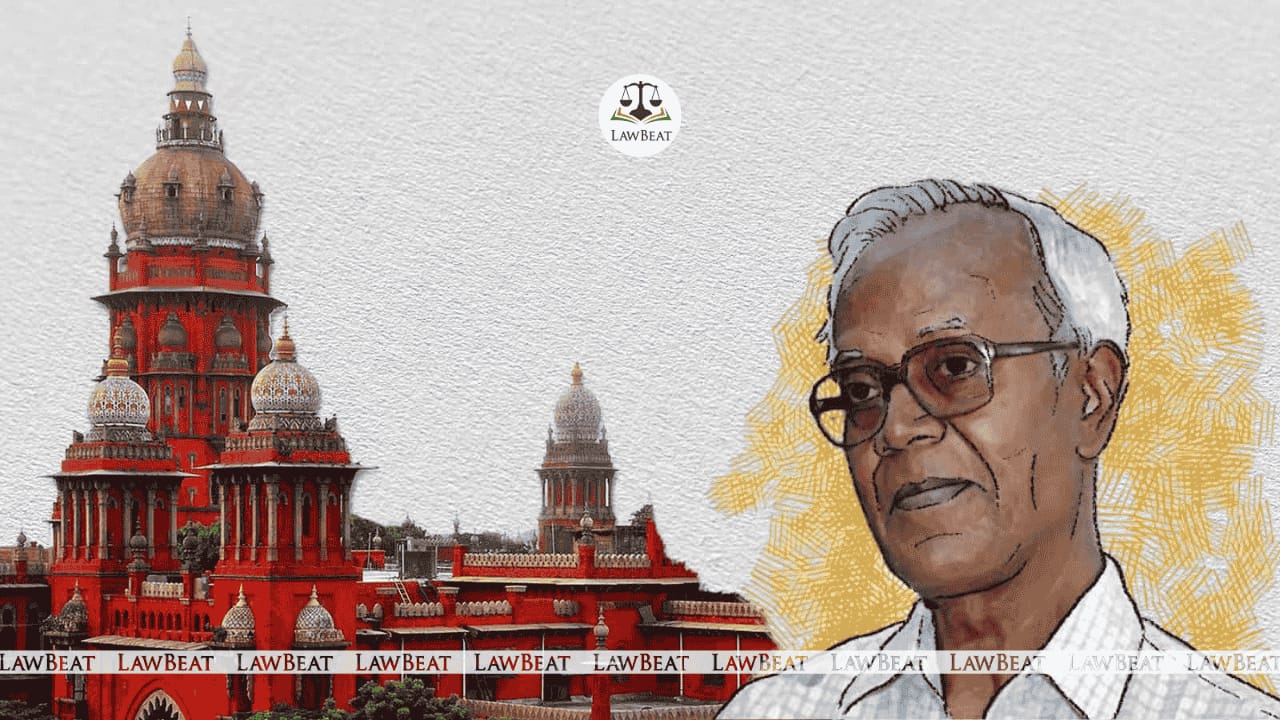'State Cannot Stop Installation of Memorials on Private Land': Madras HC Allows Stan Swamy Statue

When an allegation put forth against a person is not proved, then the said allegation is nullity, the bench observed
The Madras High Court recently asserted that the state cannot prevent individuals from erecting memorials or statues on their private land, provided such installations do not cause public disturbances or violate legal provisions as it allowed erection of a stone pillar of Fr. Stan Swamy.
The bench of Justice M. Dhandapani delivered the judgment while setting aside a notice issued by authorities to a petitioner who sought to install a stone pillar in memory of Fr. Stan Swamy on his private property.
The petitioner, Piyush Sethia, a sustainable farming advocate from Dharmapuri district, filed the writ petition after being barred from installing the memorial. Sethia planned to honor Fr. Stan Swamy, a Jesuit priest for his contributions to marginalized communities. The authorities, however, issued a notice citing potential law-and-order issues and the alleged controversial legacy of Fr. Swamy.
Rejecting the state’s arguments, the court emphasized that no statutory provisions restrict individuals from commemorating figures they revere on private property.
Referring to a single judge bench's observations in R. Kanthavel vs. The Principal Secretary to Government (2023), Justice Dhandapani noted that the issue raised in the present writ petition was no longer res integra. He highlighted the observation in R. Kanthavel that "just as one's home is his castle, one's land is his fiefdom. The State can step in only by due process of law. A statutory or common law right cannot be restricted or taken away through a executive instructions or government orders".
The court further referenced multiple precedents affirming citizens' rights to use their private property for erecting statues or memorials. It underscored that state authorities could only intervene in cases where public peace or inter-community harmony is directly threatened. The judgment also dismissed claims that the installation would foster anti-social activities, describing them as unsubstantiated.
The government argued that the proposed memorial could disrupt communal harmony, especially in a region marked as sensitive. However, the court observed that there was no evidence supporting these claims.
The court further clarified that permissions outlined in government orders, such as those related to public land or religious structures, do not extend to private properties. It affirmed that private citizens hold the liberty to honor individuals of their choice, as long as the installations adhere to general legal norms and do not encroach on public rights.
In setting aside the notice issued by the Dharmapuri district authorities, the court allowed Sethia to proceed with the memorial's installation on his patta land in Nekkundi village. However, it directed that the installation process should not hinder public access or cause any inconvenience to the community.
Case Title: Piyush Sethia Vs. The District Collector, Dharmapuri and Others
